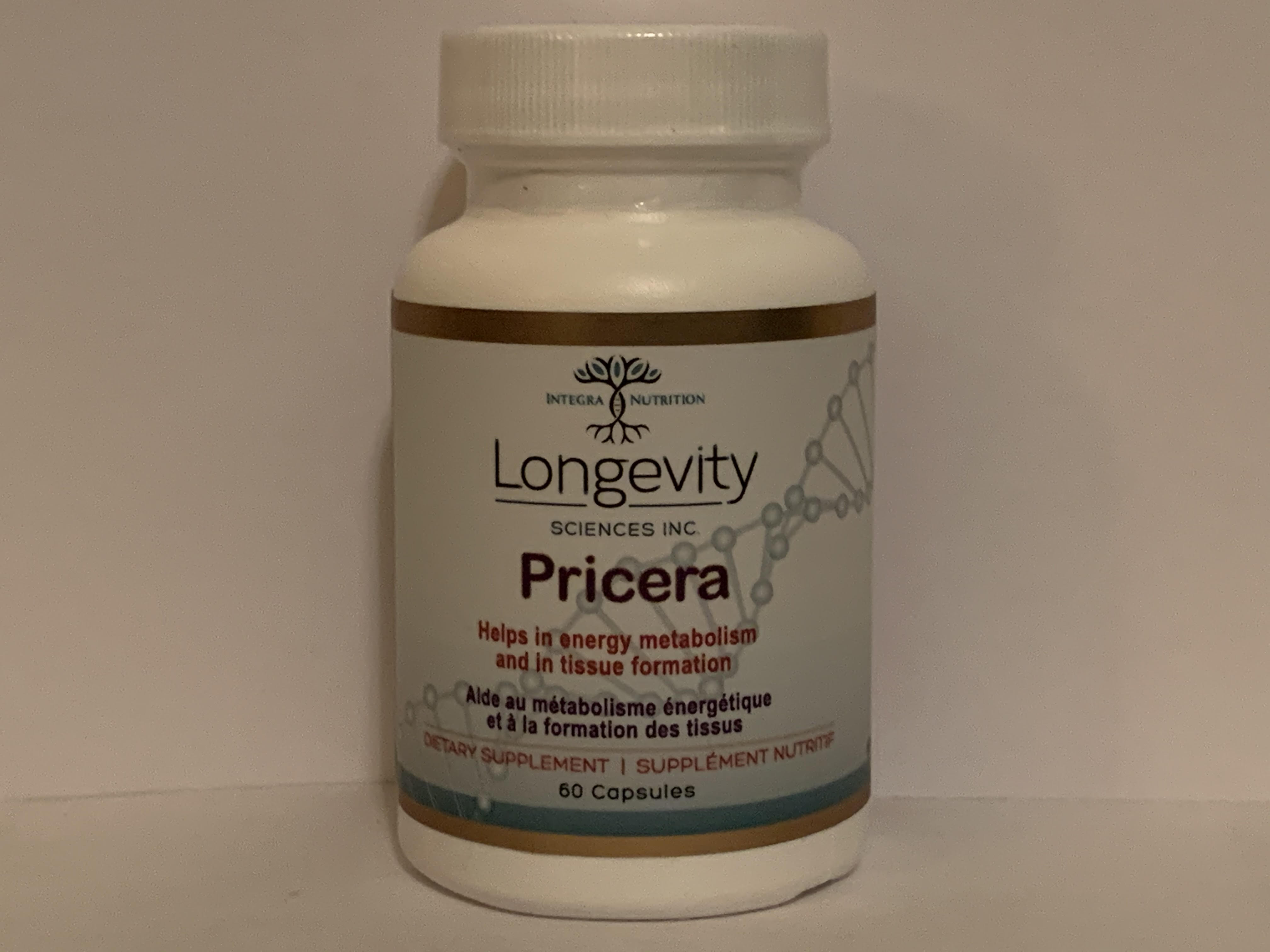
Why Optimizing NAD+ Levels is Critical for Healthy Aging
Pricera our NAD+ precursor formulation is now available!
Why maintaining optimal NAD+ levels as we age is critical to our quality of life, healthspan and potentially lifespan
I wanted to share with you today why I believe that maintaining optimal NAD+ levels is critical for healthy aging, extending healthspan – and potentially lifespan (as has been shown in animal studies).
“In my opinion, NAD therapy will turn out to be one of the greatest advances in medical science since Fleming developed penicillin”.
Dr. Phil Milgram, MD
NAD+ levels decrease with age:
- People aged 50 have about 40% less NAD+
- By the age of 80 years, NAD+ levels decline between 90-98%

NAD+ and the Sirtuin Longevity Genes
Optimal NAD+ levels are critical for the activation of the Sirtuin longevity genes.
Limited Sirtuin longevity gene activity can lead to an acceleration of the aging process: one example of this is vascular aging.
Vascular aging is responsible for a constellation of disorders, such as cardiac and neurologic conditions, muscle loss, impaired wound healing and overall frailty, amongst others.
Multiple animal studies have demonstrated that increasing sirtuin activity leads to:
•Longer life
•Less age-related loss of function
•Less DNA damage
NAD+ maintains and builds sirtuin levels and activity
Exercise Performance
Another impressive benefit of optimizing NAD+ levels is in the area of exercise:
In a mouse study, the cohort which was supplemented to optimize NAD+ levels it increased their exercise capacity between 56 and 80 percent, compared with untreated mice.
David Sinclair, PhD commented about the results of this study:
“Even if you’re an athlete, you eventually decline,” Sinclair said. “But there is another category of people—what about those who are in a wheelchair or those with otherwise reduced mobility?”
In another study involving elderly men, supplementation with an NAD+ precursor resulted in improved exercise performance:
The men in this study had an 8% improvement in peak isometric muscle torque (a measure of muscle force) and a 15% improvement in fatigue associated with exercise.
Other Research Highlights:
• Boosting NAD+ biosynthesis by using key NAD+ intermediates is now drawing significant attention for: Alzheimer’s/Type 2 Diabetes/Heart Failure/ Hearing Loss
• NAD+ precursors have been shown to increase stem cell colonies by 75% in the gut of aging mice
• Other studies point to the role of NAD+ in restoring circadian rhythms needed for restorative sleep
• SirT1 overexpression protects against Alzheimer’s and Huntington’s disease as well as ALS
Low NAD+ Levels Can Contribute to the Following:
•Accelerates aging
•Increases sunburn and skin cancer
•Decreases cellular antioxidants
•Decreases metabolism along with thyroid hormones
•Harms immune function
•Increases inflammation
•Impairs brain function
•Can cause hypoxia intracellularly
•Associated with Chronic Fatigue Syndrome
•May worsen weight gain and metabolic syndrome
•May worsen cardiovascular diseases
May contribute to MS (multiple sclerosis)
Why Is It Important to Increase NAD+ Levels?
General Benefits
•Low NAD+ levels can accelerate the aging process
•NAD+ is vital for mitochondrial health
•NAD+ plays a key role in cellular metabolism and energy production
•NAD+ is a rate-limiting co-substrate for sirtuins
•High NAD+ levels are essential for DNA repair and recovery
•NAD+ activates CD38, which is present on many immune cells (white blood cells) and associated with impaired immune responses.
•Enhances autophagy
•Helps maintain redox potential
Specific Conditions
•Positive impact on the Diabesity Spectrum
•Low NAD+ levels may worsen cardiovascular diseases
•Low NAD+ levels may increase inflammation

In my opinion, you cannot age well and extend healthspan without addressing and maximizing NAD+ levels, especially with older patients.
For more information about Pricera or where you can get some reach out to me.
Copyright © 2020 Robert Lamberton
All rights reserved
Health Conditions Which Can Benefit From Increased NAD+ Levels:
•Alcoholism
•ALS
•Alzheimer’s Disease
•Anxiety
•Benzo Addiction
•Brain Injury
•Cancers
•Chronic Fatigue
•Depression
•Diabesity Spectrum
•Elevated cholesterol levels
•Fibromyalgia
•Hypertension
•IBS
•Immune system activation
•Inflammation
•Lyme’s Disease
•Malabsorption Syndrome
•Methadone Addiction
•Mitochondrial Dysfunction
•Multiple Sclerosis
•Narcotic Addiction
•Neurodegeneration
•Oxidative stress
•Parkinson’s Disease
•PTSD
•Respiratory Allergies
•Schizophrenia
•SIBO
•Skin Allergies
•Stress